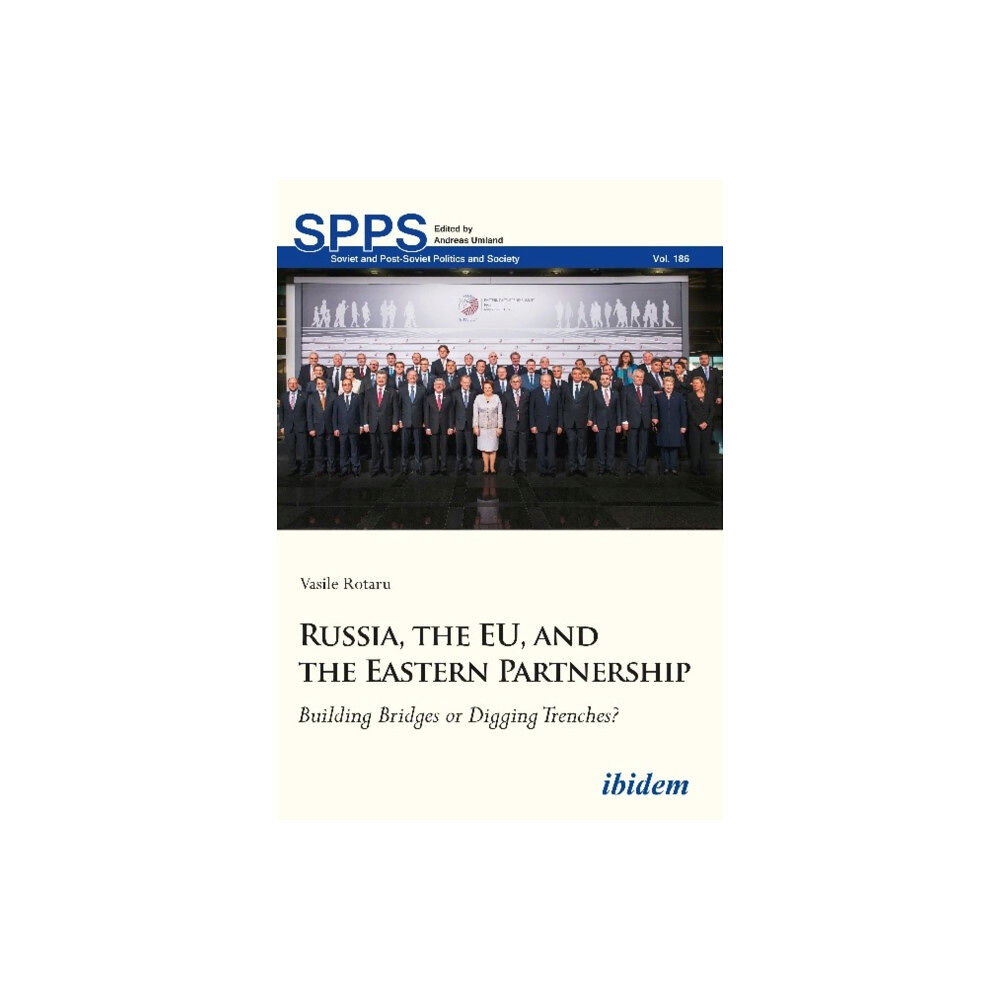- Hem
- Böcker
- Kurslitteratur
- Samhälle & Politik
- Russia, the EU, and the Eastern Partnership – Building Bridges or Digging Trenches? (häftad, eng)

Russia, the EU, and the Eastern Partnership – Building Bridges or Digging Trenches? (häftad, eng)
Even before the Ukrainian crisis, neither Russia nor the EU were content with their relationship. Despite economic interdependence, strategi...
289 kr
335 kr
Bara 2 kvar
Skickas inom 2-3 vardagar
Fri frakt över 299:-
Snabb leverans
Alltid låga priser
Produktbeskrivning
Even before the Ukrainian crisis, neither Russia nor the EU were content with their relationship. Despite economic interdependence, strategic partnership, official declarations of belonging culturally and historically to the same European family and in spite of Russias stated interest in establishing an economic community stretching from Lisbon to Vladivostok, the two actors found it difficult to agree on important issues.
The conflictual atmosphere between the EU and Russia has three main dimensions: the normative issue, energy relations, and the shared neighbourhood with the latter being particularly salient after the launch of the Eastern Partnership (EaP) in 2009. The former Soviet space is at the core of Russian foreign policy.
Moscows special interest in this area results from economic factors, diaspora issues, and, most importantly, from its perceived security need. Obsessed by a fear of being encircled by enemies, Russia sees its hegemony over the former Soviet republics as paramount to the protection of its own borders.
Therefore, the rapprochement of any other actor towards this region is regarded with high suspicion.Against this background, Vasile Rotaru analyzes EU-Russia relations with a particular emphasis on the impact of the EaP on Moscows relations with Brussels. He argues that the EaP represented a turning point in EU-Russia relations, determining Moscow to revise its attitude towards the Union.
Rotaru explains that, even if the EaP was Brussels initiative, the Partnership met the aspirations of the six former Soviet republics. Moreover, despite its opposition towards the EUs initiative, Russia itself acted involuntarily as a propeller of the EaP. By aiming to keep the former Soviet republics close, Moscow often conducts an assertive, aggressive policy in the near abroad.
This strategy, however, had mostly opposite effects, causing Russias neighbors to look elsewhere for support of their sovereignty. From this perspective, the rapprochement of Moldova, Belarus, Ukraine, and the three Caucasus republics with the EU has not been determined only by Brussels prosperity and soft-power attractiveness but also by existential fears in the former Soviet republics.The book appeals to a wide range of students, researchers, and professors specializing on Russia, the EU, and the former Soviet space in the fields of International Relations, Foreign Policy Analysis, and Security Studies as well as to think-tank analysts and policy makers.
The conflictual atmosphere between the EU and Russia has three main dimensions: the normative issue, energy relations, and the shared neighbourhood with the latter being particularly salient after the launch of the Eastern Partnership (EaP) in 2009. The former Soviet space is at the core of Russian foreign policy.
Moscows special interest in this area results from economic factors, diaspora issues, and, most importantly, from its perceived security need. Obsessed by a fear of being encircled by enemies, Russia sees its hegemony over the former Soviet republics as paramount to the protection of its own borders.
Therefore, the rapprochement of any other actor towards this region is regarded with high suspicion.Against this background, Vasile Rotaru analyzes EU-Russia relations with a particular emphasis on the impact of the EaP on Moscows relations with Brussels. He argues that the EaP represented a turning point in EU-Russia relations, determining Moscow to revise its attitude towards the Union.
Rotaru explains that, even if the EaP was Brussels initiative, the Partnership met the aspirations of the six former Soviet republics. Moreover, despite its opposition towards the EUs initiative, Russia itself acted involuntarily as a propeller of the EaP. By aiming to keep the former Soviet republics close, Moscow often conducts an assertive, aggressive policy in the near abroad.
This strategy, however, had mostly opposite effects, causing Russias neighbors to look elsewhere for support of their sovereignty. From this perspective, the rapprochement of Moldova, Belarus, Ukraine, and the three Caucasus republics with the EU has not been determined only by Brussels prosperity and soft-power attractiveness but also by existential fears in the former Soviet republics.The book appeals to a wide range of students, researchers, and professors specializing on Russia, the EU, and the former Soviet space in the fields of International Relations, Foreign Policy Analysis, and Security Studies as well as to think-tank analysts and policy makers.
| Format | Häftad |
| Omfång | 180 sidor |
| Språk | Engelska |
| Förlag | ibidem-Verlag, Jessica Haunschild u Christian Schon |
| Utgivningsdatum | 2021-12-08 |
| ISBN | 9783838211343 |
Specifikation
Böcker
- Häftad, 180, Engelska, ibidem-Verlag, Jessica Haunschild u Christian Schon, 2021-12-08, 9783838211343
Leverans
Vi erbjuder flera smidiga leveransalternativ beroende på ditt postnummer, såsom Budbee Box, Early Bird, Instabox och DB Schenker. Vid köp över 299 kr är leveransen kostnadsfri, annars tillkommer en fraktavgift från 29 kr. Välj det alternativ som passar dig bäst för en bekväm leverans.
Betalning
Du kan betala tryggt och enkelt via Avarda med flera alternativ: Swish för snabb betalning, kortbetalning med VISA eller MasterCard, faktura med 30 dagars betalningstid, eller konto för flexibel delbetalning.
Specifikation
Böcker
- Format Häftad
- Antal sidor 180
- Språk Engelska
- Förlag ibidem-Verlag, Jessica Haunschild u Christian Schon
- Utgivningsdatum 2021-12-08
- ISBN 9783838211343
